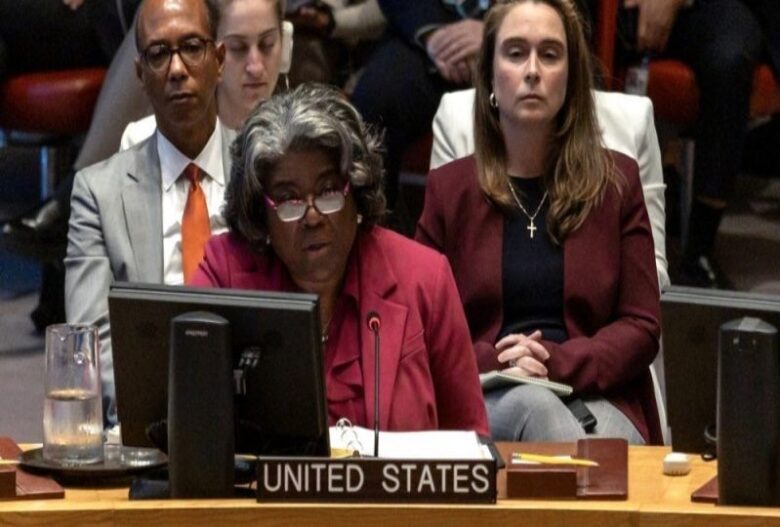U.S. Ambassador to the U.N., Linda Thomas-Greenfield, is set to announce on Thursday that the United States supports adding two permanent seats for African nations and one rotating seat for small island developing states to the United Nations Security Council.
This proposal aims to strengthen U.S. ties with Africa and the Pacific Islands amid dissatisfaction with U.S. support for Israel’s actions in Gaza and growing Chinese influence in the Pacific.
Thomas-Greenfield hopes this announcement will advance Security Council reform, aligning with President Joe Biden’s legacy.
The U.S. has also long supported permanent seats for India, Japan, and Germany on the Council.
Developing countries have long sought permanent seats on the U.N. Security Council, the most influential body within the United Nations. Despite extensive discussions on reform, progress has been limited, and it’s uncertain if U.S. backing will lead to significant changes.
Before announcing the proposal at the Council on Foreign Relations in New York on Thursday, Thomas-Greenfield informed Reuters that the U.S. does not support expanding the veto power beyond the current five permanent members:
Russia, China, France, the U.S., and Britain. The Security Council, established in 1945 with 11 members, expanded to 15 in 1965, including 10 elected states serving two-year terms alongside the five permanent veto-holding nations.
Credibility Issue
U.N. Secretary-General Antonio Guterres supports reforming the Security Council, stating, “You have a Security Council that corresponds exactly to the situation after the Second World War that has a problem of legitimacy, and that has a problem of effectiveness, and it needs to be reformed,” in a Reuters interview on Wednesday.
Modifications to the Security Council’s membership require an amendment to the U.N. Charter, which must be approved and ratified by two-thirds of the General Assembly, including the five permanent veto-wielding members of the Security Council.
The 193-member U.N. General Assembly has debated Security Council reform annually for over a decade, with recent years seeing increased momentum due to geopolitical rivalries and the Council’s deadlock on key issues, especially following Russia’s invasion of Ukraine.
U.S. Ambassador Linda Thomas-Greenfield is expected to announce on Thursday that Washington supports advancing to negotiations on a draft amendment to the U.N. Charter to expand the Security Council.
However, she noted that it is unclear how long it will take for the General Assembly to vote on such a resolution.
Every year, the General Assembly selects five new members from various geographical regions for two-year terms on the Security Council. Africa currently holds three rotating seats.
“The issue is, these non-permanent seats don’t allow African nations to fully contribute their expertise and perspectives to the Council’s work or consistently take the lead on issues that impact everyone, especially Africans,” Thomas-Greenfield will say.
She will also argue that small island developing states should have a rotating seat due to their “valuable insights on international peace and security matters, particularly regarding climate change.”
YOU MAY ALSO READ: Ghana to play AFCON qualifiers in Nigeria as CAF rejects home stadium









Got a Question?
Find us on Socials or Contact us and we’ll get back to you as soon as possible.